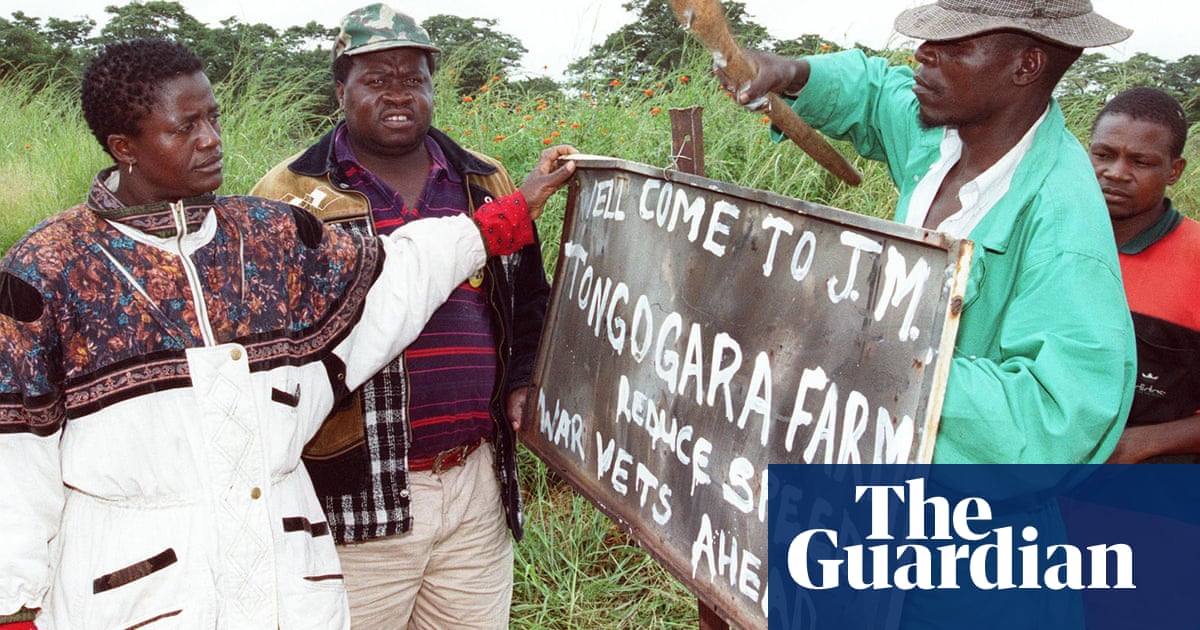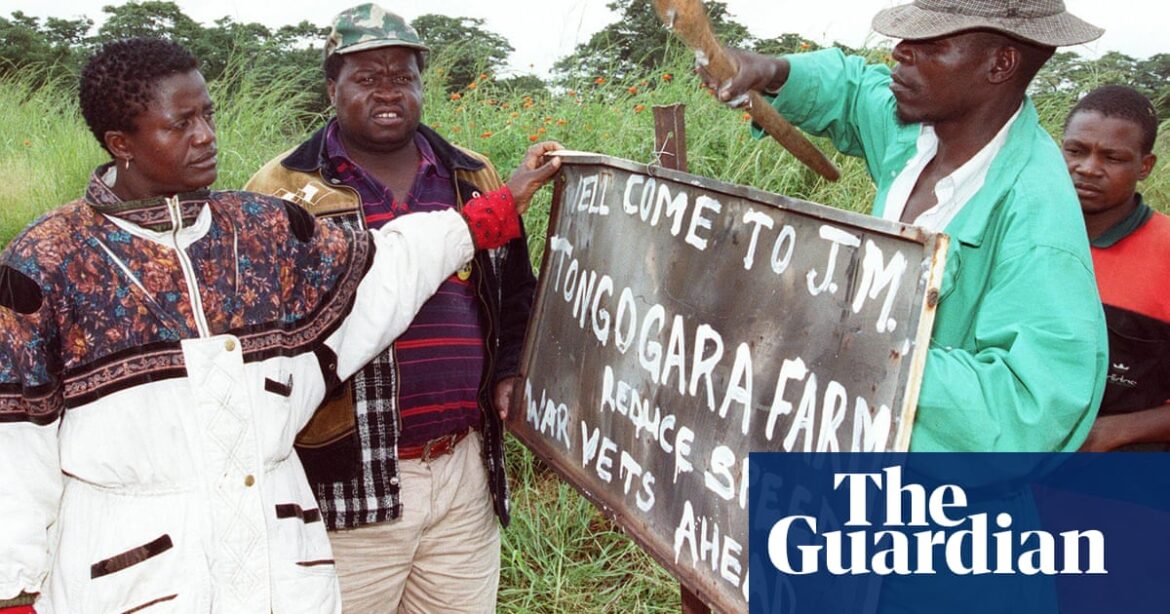
Zimbabwe has started to make compensation payments to white former farm owners, 25 years after Robert Mugabe’s government began confiscating land.
The government paid $3.1m (£2.3m) to a “first batch” of 378 farms, the ministry of finance said in a statement on Wednesday, the first payout under a 2020 agreement to pay $3.5bn in compensation.
The remainder of the $311m due to this group of farmers will be paid in US dollar-denominated treasury bonds with two- to 10-year maturities and interest of 2%. That is much lower than the current yield on a two-year US treasury bond of about 3.8%.
Zimbabwe’s finance minister, Mthuli Ncube, said: “The payments will continue. We are very serious about this.”
Mugabe’s government seized more than 4,000 mostly white-owned farms, often violently, from about the year 2000 to redistribute to black people in what it claimed was restitution for the dispossession of British colonial rule.
However, Mugabe and his cronies took nearly 40% of the 14m hectares (about 35m acres) confiscated for themselves, according to a 2010 investigation by a local news outlet, ZimOnline. Agricultural production, which had accounted for 40% of exports, plunged and the economy collapsed, with hyperinflation reaching a staggering 500bn% in 2008.
Zimbabwe cannot borrow from the World Bank and International Monetary Fund as it has been in arrears since 2000 and 2001, respectively. Government debt was $21bn late last year, about half of which was arrears and penalties.
The compensation payments to the displaced farmers are one of the requirements of international lenders to start a debt restructuring process with Zimbabwe, including a new IMF programme.
Andrew Pascoe, who signed the 2020 compensation deal while head of the Commercial Farmers’ Union, confirmed the first payments had been received on 24 March and thanked Zimbabwe’s government, in comments included in the ministry of finance statement. He said: “We are extremely grateful.”
However, Tony Hawkins, a retired University of Zimbabwe economics professor, called the payments a “publicity stunt”, noting that the US could block an IMF programme. A US law “restricts US support for multilateral financing to Zimbabwe until Zimbabwe makes concrete governance and economic reforms”, according to the US state department.
Of using government bonds to pay farmers, Hawkins said: “We continue to accumulate arrears because we are unable to service our foreign debt, so we can’t really afford to take on new debt commitments … It’s derisory, the more you look at it.”
About 1,000 former farmers had signed up for compensation, said Harry Orphanides, one of Pascoe’s co-negotiators. He said: “Look, it’s not a perfect deal. But there was no other alternative.”
Source: theguardian.com



